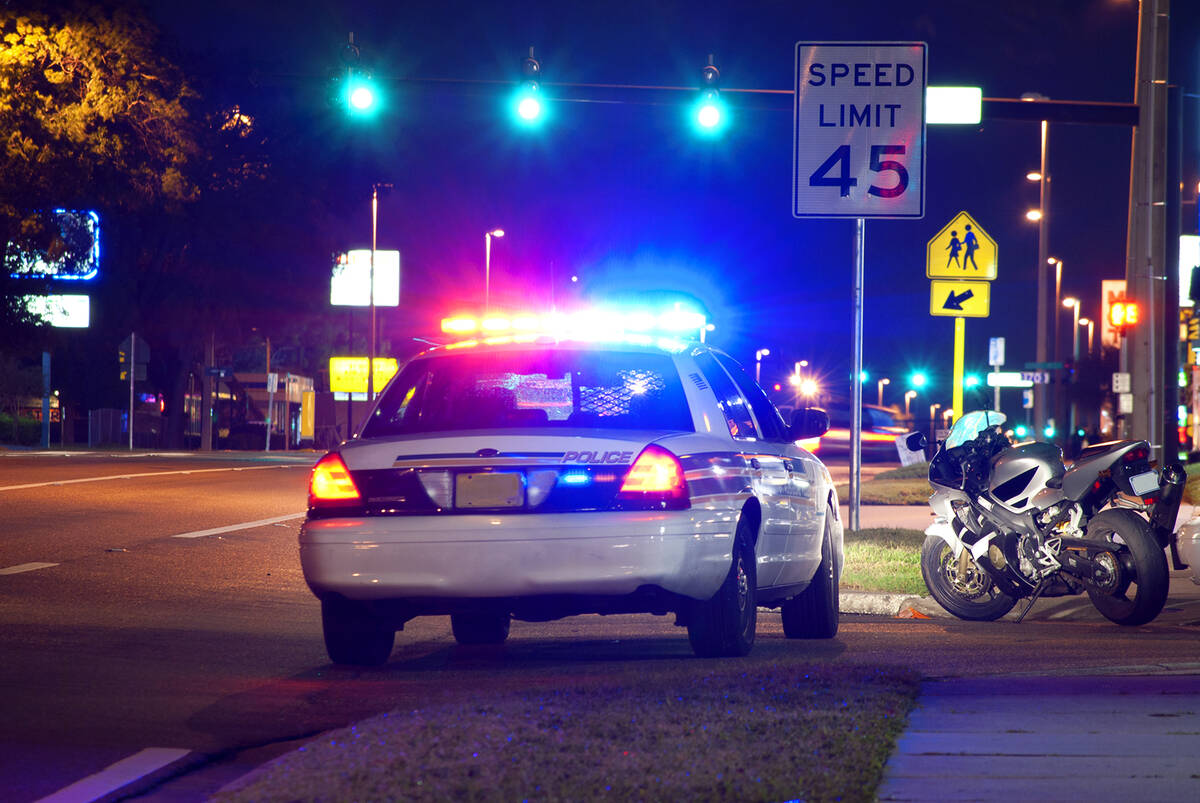New law decriminalizes drivers’ minor infractions
A statewide ordinance decriminalizing minor traffic offenses officially went into effect with the start of the new year.
Assembly Bill 116 reduces the consequence for multiple minor traffic offenses such as failing to signal when changing lanes from misdemeanor offenses to civil penalties. Major offenses like DUI and driving without registration will still be considered crimes under this ordinance.
The bill was passed in the last state legislative session.
“Regarding enforcing the laws/ordinances there is no real difference for our officers,” said Timothy Shea, chief of the Boulder City Police Department.
The ordinance doesn’t change police practices surrounding traffic stops, except the criminal citations given by police for minor traffic violations are now called “civil infraction citations.” Police can still arrest drivers if there’s probable cause or cite drivers for other crimes committed, even on the same ticket as the civil citations.
Most of the changes with this ordinance come after the citation is given by police, but according to Justice of the Peace and municipal Judge Victor Miller, the driver’s experience still won’t be very different than before.
“For the actual drivers who get a citation, there will be little change from the past,” said Miller. “If they are found responsible for the offense, there will be a monetary penalty (or community service if finances are a problem) and demerit points on their driver’s license.”
Drivers can either contest the civil infraction in court or pay off the damages, and there are options like payment plans or alternatives like community service if the driver can’t afford the fines.
From the date of citation, drivers will have 90 days to contest the charges in court or pay the fine, which can be done online. If no action is taken after 90 days, the courts will automatically find that the driver did commit the offense and they will have to pay the expenses.
The change from crimes to civil offenses also means that failing to pay the fines won’t result in the driver getting arrested, but failing to pay can get a driver’s license revoked.
“The biggest difference for those receiving a citation will be that there will be no need for an actual appearance in court unless they want to contest the charge,” said Miller.
This type of enforcement on minor traffic offenses is not new to the U.S., as Nevada was one of only 13 states in the country to prosecute minor traffic offenses as criminal misdemeanors, according to the Federal Sentencing Reporter.
“Other states, including the state of Washington, where I worked with such a system for over 30 years, have had what Nevada will be seeing effective Jan. 1 for decades,” said Shea.
Outstanding bench warrants for minor traffic offenses committed in 2022 have to be canceled under this ordinance. Drivers can not be arrested for these violations and the violations were changed from criminal offenses to civil matters as well.
Las Vegas Review-Journal staff writer Jessica Hill contributed to this report.
Contact Mark Credico at mcredico@reviewjournal.com. Follow him on Twitter @MarkCredicoII.
















